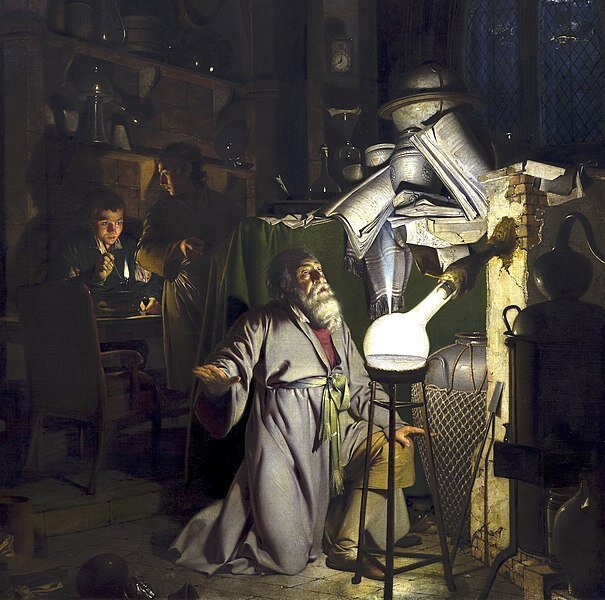The Genealogies of Modernity Journal
Humanities beyond the Crisis
This sense of repetition—of just how persistent the titular state of “crisis” in the humanities has been—gives one pause. It is in the space of this pause that their criticisms may land with force.
Jonathan Heaps reviews Permanent Crisis
Nuclear Counterfactuals: Part II
Truman’s decision was an inevitably flawed human attempt to come to grips with a wicked problem, in the absence of perfect knowledge and in the full knowledge that the stakes were world-historical in significance.
Andrew Latham on counterfactuals and the atom bomb
Hiroshima and Nuclear Counterfactuals
Counterfactual history allows us to sharpen our judgment by juxtaposing what did happen with what could have happened.
Andrew Latham on thinking through counterfactuals and the bombing of Hiroshima
The Diverse Roots and Routes of Liberty
There are many roads to modern liberty, but some focus not on the triumphant will but on the richness of the person and our commitments to one another.
Fred Bauer on an off-liberalism marked by care, duty, and solidarity rather than autonomy
The Social Question of Artificial Intelligence
The word “artifice” means handiwork, work of skill. Artificial intelligence is a wondrous work. And yet, if we allow that artifice to define our reality… we may become artifices ourselves, handiwork of our handiworks.
John Dolan and Jordan Wales on AI and us
Developing an Off-Liberalism
Rather than being merely anti-liberal or anti-postliberal, the off-liberal reveals (and perhaps revels in) the heterogeneity of sources for the so-called “liberal” order.
Fred Bauer on developing an off-liberal approach to modern political predicaments
How AI Will Change Us
The meaning of our personhood becomes a necessary object of examination wherever some technology is deeply entwined with our lives, particularly when that technology purports to replicate what we are.
Jordan Wales and John Dolan on AI and us
Retelling the Human Story
The crisis of deep history is a crisis for our modern self-understanding, and a short chronology of human civilization is no longer adequate for explaining our place in the world.
Evan Kuehn on the need for a longer view of history
Giving Utopia Its Due
Abjuring the legacy of utopianism distances us from one of the prime affective and intellectual forces motivating such modern ideals as popular sovereignty, human rights, and social progress.
Daniel Cunningham on the need for utopias
The Crisis of Historicism as a Crisis of Deep History
The crisis for historicism was its inability to hold together a single human story in the wake of its demolition effect on older sacred narratives.
Evan Kuehn engages Ernst Troeltsch on deep and sacred history
In Hope of Bulkington: Moby Dick and American Doom
We cannot know the end of America, though we know from the first unfurling of Ishmael’s prophecy that the voyage of the Pequod is doomed.
Daniel Fitzpatrick follows in the wake of the doomed Pequod
Traveling the Via Moderna with Pierre d'Ailly
From the vantage point of Pierre d’Ailly’s introduction to the Consolation of Philosophy, history looks like a tower of hand-wringing moderns all the way down.
Matthew Vanderpoel looks to the medievals and finds that we are not the first moderns
Sex Is Not a Metaphor: the Politics of the Modern Self
The self exists to be true to itself, and it can only be so insofar as it sloughs off the heteronomous influences of society. The unhappy result is that “we are all expressive individuals now.”
James Matthew Wilson reviews Carl Trueman’s The Rise and Triumph of the Modern Self
Are We Still Medieval? Epochal Overlaps in Contemporary Life
When we are doing genealogies of modernity, we may find that what we are doing is arguing for which epoch we think is best for the future. Thee real question for the present may be this: which past will be our future?
Terence Sweeney on living within different eras
The Problem of Japanese Modernity
Because Japan had grafted what was available in Anglo-European modernity onto its socio-political and cultural milieu (i.e., fūdo 風土), Japan ended up with a strange mixture of ‘super-modernity’ and ‘pre-modernity’ as their peculiar form of ‘modernity.’
Takeshi Morisato on the thought of Maruyama Masao
Getting to the Roots of Modern Culture: On Lonergan Part II
If Christians would engage, penetrate, and Christianize a culture and society like ours, one with a robust and developed superstructure, we must develop a theology of comparable robustness in the face of contemporary questions.
Jonathan Heaps on the superstructures of modern culture
The Ecology of a Different Modernity
A new modernity will be marked by a different account of the good life with a different set of shared loves. Kate Soper shows that underneath our tawdry love of stuff there are deeper, more interesting loves.
Terence Sweeney reviews Post-Growth Living and finds in it a counter-modern modernity
Marriage Made the West WEIRD
Joseph Henrich’s account shows that much of what we take to be typically modern habits of mind—individualism, impersonal prosociality, an acute sense of guilt—were already deeply imbedded in the Western psyche by the High Middle Ages.
Brendan Case reviews The WEIRDest People in the World
A Genealogist of Slavery Confronts the Archives
We can tell stories other than slavery’s violence, but does that extend dignity to enslaved, brutalized humans? Does a story ‘against the grain’ face down the thing the archive does (preserving violence and creating race)? Or does a story about the violence memorialize violence?
Maria Cecilia Ulrichson asks what Christian genealogy can learn in the archives
On the Myth of a Singular Science
Stephen Gaukroger exposes the insubstantial reasons for assuming that some meaningful theoretical construct or set of practices called "Science" underpins all the sciences..
Eileen Reeves reviews Civilization and the Culture of Science























